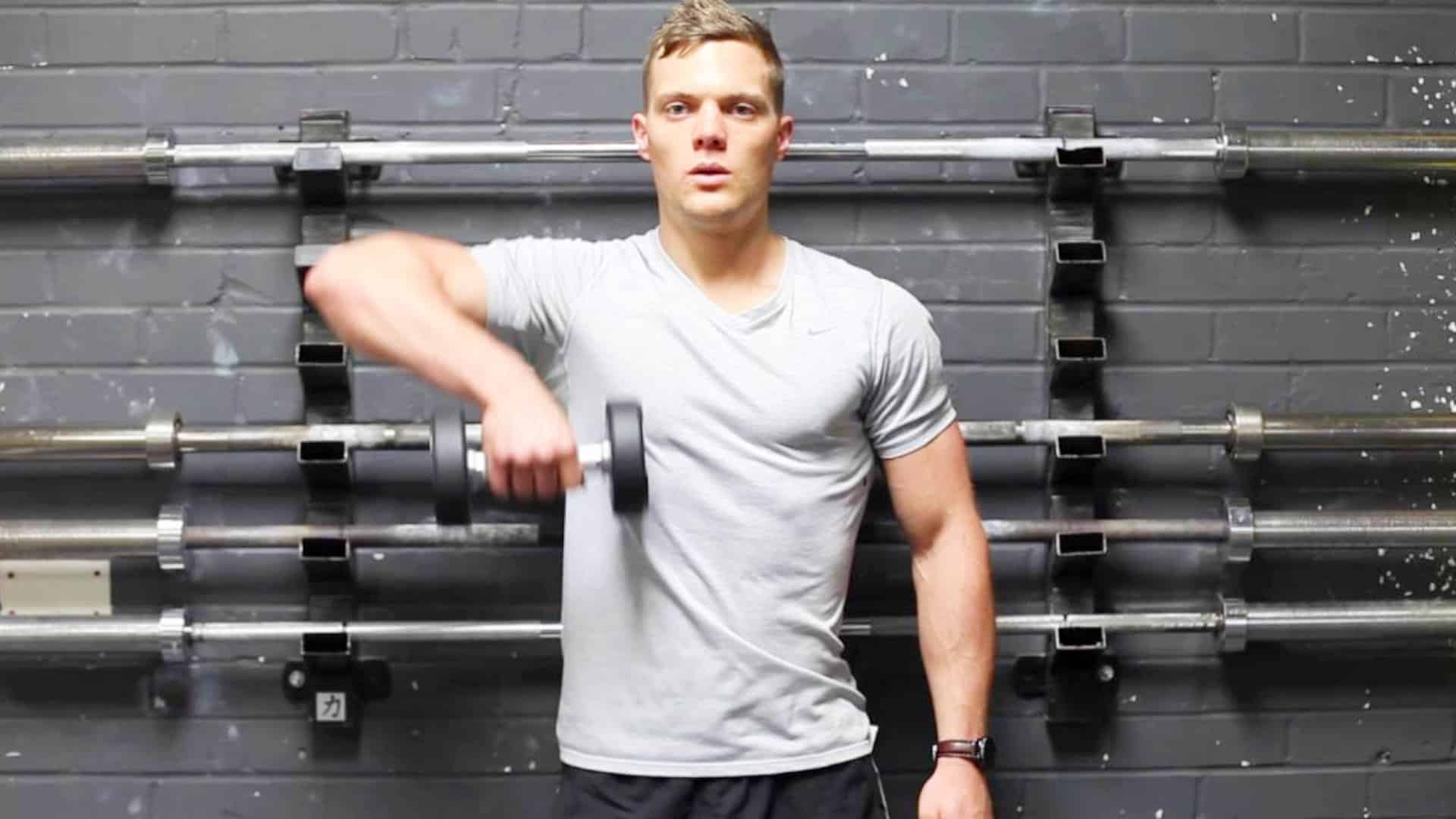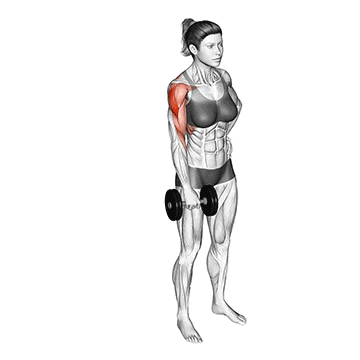The single-arm upright row is an upper-body exercise that predominantly targets the lateral deltoids (responsible for adding width to your shoulders). It is more shoulder-friendly than barbell upright rows.
This exercise also challenges your trapezius (traps), a large muscle in the back that helps you shrug your shoulders, the rhomboids, and even the rear delt.
It is a unilateral variation on the dumbbell upright row and an effective movement for building stronger and bigger traps and shoulders.

Single Arm Upright Row Muscles Worked
The upright row targets some of the body’s most integral muscle groups.
- Primarily Muscle Worked: Lateral Deltoid
- Secondary Muscles Worked: Anterior Deltoid, Supraspinatus, Brachialis, Brachioradialis, Biceps Brachii, Middle and Lower Trapezius, Serratus Anterior, Infraspinatus, and Teres Minor.

Want to take your gains to the next level? Discover your daily calorie needs with our free TDEE calculator
How To Do Single-Arm Upright Row

- Stand with your feet shoulder-width apart. Hold a dumbbell in your left hand at your side.
- Your arm should be long with a slight bend in your elbows. Before you start, tighten your shoulders and hips and squeeze your core.
- Start lifting the dumbbell straight up along your body. Keep your elbow higher than your forearm.
- At the top, your upper arm should be about parallel to the ground. Don’t go higher than this – it can stress your shoulder joint unnecessarily.
- Slowly lower the dumbbell back to the starting position.
- After completing all reps on the left side, repeat on the right side. Repeat for the desired number of repetitions.
Form and Tips
- Keep your elbows higher than your forearms.
- Lift only until your arm reaches chest height—going higher can strain your shoulder joints.
- You should keep your back straight and core tight.
- Remember to breathe out when you work hard.
- At the top of the movement, pause and squeeze the traps, and then lower the dumbbells slowly to make the exercise more intense.
- Keep a controlled motion and avoid jerky movements.

Manish is a NASM-certified fitness and nutrition coach with over 10 years of experience in weight lifting and fat loss fitness coaching. He specializes in gym-based training and has a lot of knowledge about exercise, lifting technique, biomechanics, and more.
Through “Fit Life Regime,” he generously shares the insights he’s gained over a decade in the field. His goal is to equip others with the knowledge to start their own fitness journey.
